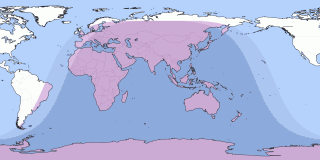Jul 6, 2028 at 9:24 pm
Max View in 51°11'18.2"N, 0°42'19.9"E
| Global Event: | Partial Lunar Eclipse |
|---|---|
| Local Type: | Penumbral Lunar Eclipse, in 51°11'18.2"N, 0°42'19.9"E |
| Begins: | Thu, Jul 6, 2028 at 9:15 pm |
| Maximum: | Thu, Jul 6, 2028 at 9:24 pm -0.627 Magnitude |
| Ends: | Thu, Jul 6, 2028 at 9:55 pm |
| Duration: | 40 minutes |
All times shown on this page are local time. |
Eclipses and Transits Visible in 51°11'18.2"N, 0°42'19.9"E
| Eclipse Visibility From 51°11'18.2"N, 0°42'19.9"E | Visibility Worldwide | ||
|---|---|---|---|
|
|
Aug 12, 2026 Partial Solar Eclipse | Total Solar Eclipse |

|
|
|
Aug 28, 2026 Partial Lunar Eclipse | Partial Lunar Eclipse |

|
|
|
Feb 20–21, 2027 Penumbral Lunar Eclipse | Penumbral Lunar Eclipse |

|
|
|
Aug 2, 2027 Partial Solar Eclipse | Total Solar Eclipse |

|
|
|
Jan 12, 2028 Partial Lunar Eclipse | Partial Lunar Eclipse |

|
Note: Click on the date link for details in 51°11'18.2"N, 0°42'19.9"E, or the path map image for global details. |
Next total solar eclipse visible in 51°11'18.2"N, 0°42'19.9"E
